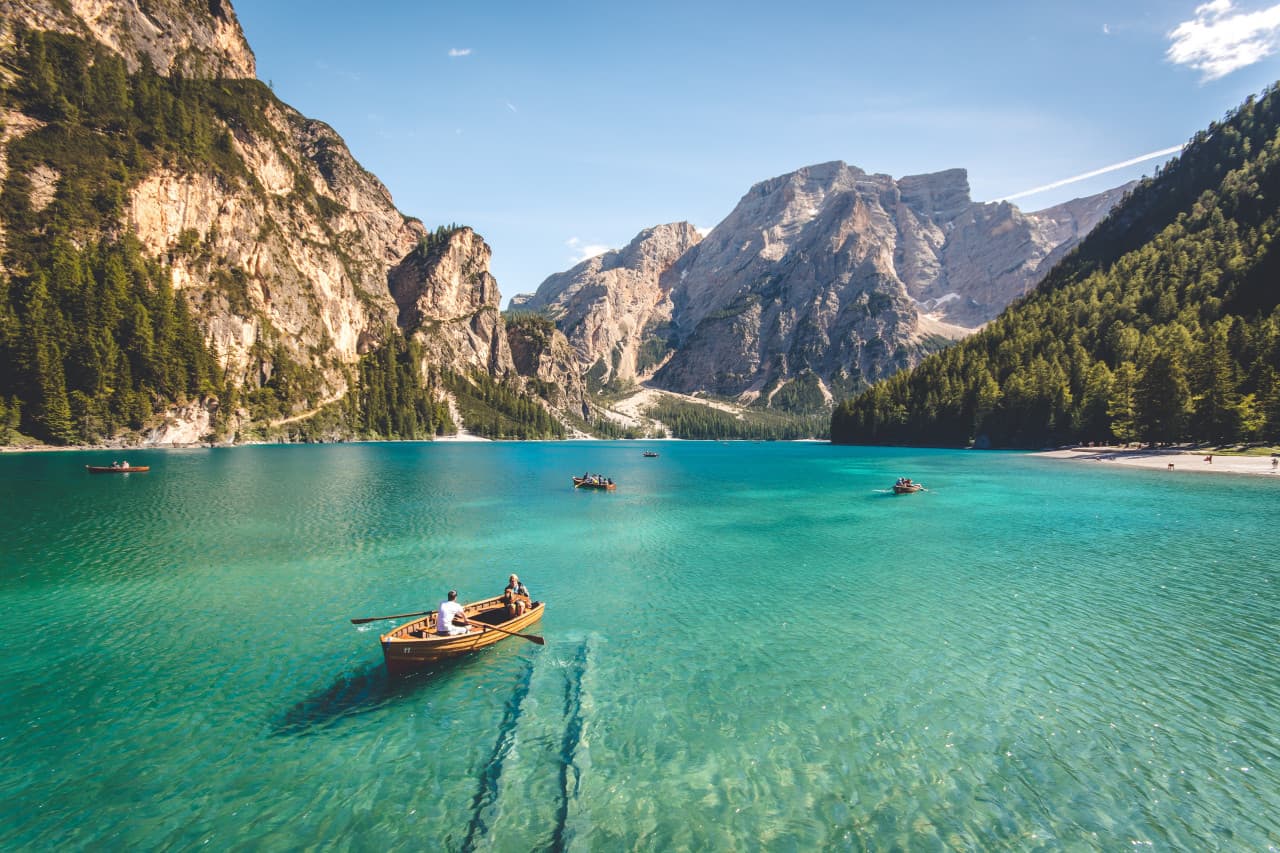A Filmmaker’s Guide to Screen Tourism: Part 2

A Filmmaker’s Guide to Screen Tourism: Part 2

Since my appointment as delegate of the Mexican National Chamber of the Film Industry (CANACINE) for the State of Quintana Roo, also known as the Mexican Caribbean, I have become familiar with the phenomenon screen tourism.
In fact, screen tourism is becoming one of the key elements in policy making for the audiovisual industry in Quintana Roo, which includes what nowadays can be considered Mexico’s most important beach tourist areas.
In this article I will explain what screen tourism is, how it works and why this phenomenon has become popular in recent years. I will mention examples from several countries and discuss the requirements for and the benefits of successful screen tourism. If you missed part one of this article, be sure to check that out here first.
Finally, I will highlight the benefits of screen tourism for filmmakers.

Benefits of Screen Tourism for the Tourist Sector, Authorities, and Private Initiative
Screen tourism has been “discovered” by the sectors that directly or indirectly benefit from it, being the government authorities, tourist sector, and private initiative.
The following are some of the benefits.
Promotion of a destination
In the current era in which visual content is so important, being present in films or series is a fundamental marketing tool for tourist destinations. These territories carry out different actions to make their film tourism offer more attractive, such as film director routes or guided tours of filming locations. Screen tourism is a tool for authorities and tourist attractions to promote the area internationally through the big screen.
Visiting filming locations
People visiting filming locations directly contributes to tourism. Screen tourism largely relies on proving the authenticity of the location for visitors. “Part of what's for sale with any screen tourism encounter is the opportunity to get closer to what people love, whether that means getting closer to the space of it, feeling more immersed in it and having a tactile experience with it, or holding a sword while you're standing in the castle, but it may also mean getting closer to the people or the mechanisms or the processes of media production.
Photography is a huge part of what validates screen tourism. In a world where social media rules, many people feel if they can't “instagram” the experience, then it didn't happen. For photo opportunities, tourists are positioned in just the right spot so they will see a specific location just as it was shown through media, thus recreating a specific instance."
Although visiting film locations is the most visible part of screen tourism, this type of tourism also comprehends other activities related to audio-visual productions, for example, film studio tours. Some of the most popular studios worldwide are Universal Studios Hollywood in California and Warner Bros. Studio Tour London – The Making of Harry Potter in England.

Economic growth
Screen tourism stimulates economic growth from which the private sector can greatly benefit. Film and TV productions spend large part of their budgets on location. This includes contracting cast and crew, equipment, hospitality, food and beverages, and transport.
This is of direct benefit for locations like neighborhoods, castles, or beaches, but also for hotels, restaurants, shops, convenience stores, transport companies, private owners of homes for rent, and many others who sell goods or provide services in the local economy.
Diversification of economy
Building a strong local audiovisual industry means economic diversification for a country, region, or city. This can be of particular interest for government authorities and their long-term development planning, if there is a large dependency on only a few or even one main economic activity.
In case of screen tourism, the audiovisual industry can diversify the tourist economy and once there is a solid ecosystem for film and TV production, function as a separate economic activity.
Employment growth
Attracting film and TV productions creates jobs, which is of importance for authorities and their public policies. On an audiovisual production, cast and crew need to be contracted. Sometimes external productions bring over their own cast and crew, but ideally, with a proper local production ecosystem and public incentives, production companies can be stimulated to use local cast and crew.
Additionally, as the production requires services like transport and hospitality, audiovisual production also stimulates creation of jobs in other economic sectors.

Public Policies as Basis for Successful Screen Tourism
As mentioned, screen tourism can be of the utmost interest to government authorities.
In fact, I would argue that for successful screen tourism, it is essential to have proper public policies in place.
Here are a couple of elements that should be part of public policies.
A film law and film commission
The basis for public policies is the existence of a film law and a film commission.
Legislation forms the legal basis as to how key players involved in audiovisual production interact with each other. This includes film and TV production companies, people employed on an audiovisual production, hotels and resorts that provide for locations and hospitality, the private sector that provide for crew or services, and authorities in terms of framework, incentives, and other support.
According to the Association of Film Commissioners International (AFCI), “a film commission is a specialized office under the authority of a government entity, or administrative office, with the purpose of promoting the region through the development of film, video, and multimedia production”.
A film commission is typically the place to go to, for all questions and support related to location production. Film commissions can assist with legal requirements, protocols and permits, contact with authorities and incentives, to put filmmakers in touch with production servicing companies, cast and crew, service providers and location managers. Often, film commissions also have a catalogue of shooting locations.

Production Incentives
Production incentives are often essential to attract national and international audiovisual productions. Under production incentives we most of all refer to tax benefits provided by government, to stimulate production to come to the country, state, region, or city. Tax benefits can consist of tax credits, tax rebates, discount or elimination of VAT, or other tax-related benefits.
Public funding
Government can make available public funds for film production. This can consist of public film funds, grants, or other financial contributions coming from public sources. In essence, public funding is considered so called “soft money”. One of the attractive characteristics of soft money, is that it comes without a claim, meaning that there is no obligation for the production to pay such funds back.
Promotion and marketing strategy
What is also of the utmost importance, is an effective public promotion and marketing strategy to put the region and its locations on the map. Personally, I found Colombia’s slogan of a couple years ago, to attract international tourism, very convincing: “Colombia: el riesgo es que te quieras quedar” (translated to: Colombia, the risk is that you want to stay), with a wink to Colombia’s complicated past, but at the same time, as they say, with an eye on the future.
Organizations that represent the audiovisual industry
A professional audiovisual industry needs organizations like chambers, associations and unions that represent the key players in the audiovisual industry. That goes for a country’s national level, as well as on a local level. On a personal level, I experience that with CANACINE in Quintana Roo, as a chamber that brings filmmakers together and represents the community towards government, tourism, and the private sector. Filmmakers need to work together, to collectively achieve success. That goes for arrangements with respect to public policies, but also negotiations with the private sector.

Benefits for Filmmakers
Ultimately, I want to highlight what I think are the most important benefits of screen tourism for the film community.
Making use of public incentives
There is a variety of reasons for filmmakers to go to other countries and locations. These reasons include: a shared language, culture and historic ties, a similar approach to making films, the logistics of moving money, people and equipment across borders, tax breaks or other country-specific benefits on offer, and the locations, services, and people available in each country.
However, one of the main reasons are financial stimulants. Shooting a film or TV production in a region that offers (tax) incentives, public funds, and soft money, means that the producer can bring the budget down, and / or increase that part of the budget that comes without a financial claim from financiers. As filmmakers will acknowledge, this is one of the most important considerations from a business perspective when it is decided where to produce and shoot a film or a series.
Discounts at locations
Hotels, resorts, theme parks, restaurants, and other tourist locations, are often prepared to offer discounts to filmmakers who in return shoot a film or series at their locations and therewith, directly, or indirectly, promote or market the location on screen. This creates a win-win situation for the filmmaker and the location. For the filmmaker, it can bring down the production budget substantially, including for hospitality and food and beverage costs.

Private financial contributions and product placement
Apart from public production incentives, screen tourism can also motivate local businesses to get involved in the financing of the production. These may be hotel chains or local businesses that benefit from the promotion and marketing that a film or a series provides for a location. It may even result in private (equity) funding, as part of further diversification and professionalization of a local audiovisual industry.
Common is nowadays so-called production placement. This is a “form of advertising in which branded goods and services are featured in a production that targets a large audience. Also known as "embedded marketing" or "embedded advertising”. In exchange for product placement rights, companies may pay the production in cash, goods, or services.
This means that a film producer has additional financing options to get a film or a series made, if he or she chooses a certain location to produce and shoot.
Studio facilities
An additional important element for screen tourism is the presence of studio facilities. The elements of a film studio include sound stages, house recording studios, digital effects departments and outdoor back-lots, where films are shot. Warehouses store cameras, lights, costumes, props, old sets, and other items of film memorabilia.
Many regions that have or are building an audiovisual ecosystem, also invest in studio facilities. A current example is the Dominican Republic, with the Pinewood Dominican Republic Studios.
In additional to the wealth a location can offer in terms of nature, city life, towns, cast and crew, and incentives, a studio complex can offer facilities to a filmmaker for those parts of a production that are difficult to shoot outside, meaning that the production can stay at the same place, removing logistics-related issues and saving costs.

Qualified cast and crew on location
If a region invests in film and television related education, the film producer may be able to find highly qualified and certified cast and crew on location. In such cases, it needs to fly over less or no people from home or other places. This may reduce the production costs substantially.
Promotion of a film or series through media attention
As local tourism will want to utilize the film or series to promote its own locations and tourism, the filmmaker will have organic promotion and marketing of the project, with little to no costs for the production. This may increase the commercial value of the project, and certainly extend the attention reach to global audiences.

Conclusion
Screen tourism is the phenomenon that people decide to go on vacation or otherwise travel to a location based on what they have seen in a film or a series. With a location becoming popular because it appears in films or series, people will want to visit the locations. The numbers show that the impact of screen tourism on local tourist industries is substantial. We saw examples from several countries. Globalization of localized content, the rise of the streamers, and the impact of the COVID19 pandemic are all factors that push screen tourism. Benefits of screen tourism for the tourist sector, authorities and the private sector include promotion of a tourist destination, visiting of filming locations, economic growth, diversification of economy, and employment growth.
The basis for successful screen tourism lay in proper public policies. Benefits of screen tourism for filmmakers consist of making use of production incentives, discounts for locations, financial contributions from the private sector, the existence and creation of studio facilities, availability of qualified cast and crew, and the promotion of the film or series through media attention.
Would you like to know more about screen tourism? Let’s connect on Stage 32!
Let's hear your thoughts in the comments below!
Got an idea for a post? Or have you collaborated with Stage 32 members to create a project? We'd love to hear about it. Email Taylor at taylor@stage32.com and let's get your post published!
Please help support your fellow Stage 32ers by sharing this on social. Check out the social media buttons at the top to share on Instagram @stage32 , Twitter @stage32 , Facebook @stage32 , and LinkedIn @stage-32 .
Take Stage 32 with you! Download the Stage 32 app for iOS here. Android User? Click here for the Stage 32 Android App!
About the Author

David Zannoni
Business Affairs Consultant, Business Development/Sales
I have been working in film and TV since 2007, as an international consultant, representative and executive producer. I run my consultancy firm Zannoni Media and am consultant for North America for Freeway Entertainment, global leader in collection account management and escrow services for the inte...








